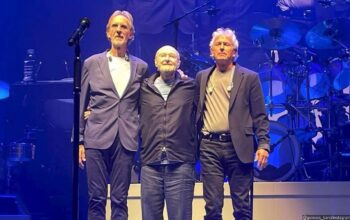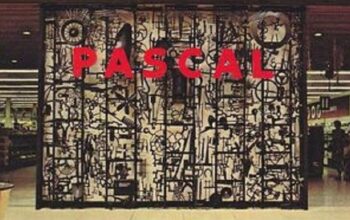Grouplove – Colours (1994)
Ever listen to a song, a favourite, and cringe at a certain lyric?
Maybe it’s pretentious (“It’s centrifugal motion…”), maybe it’s the purely sonorous and nonsensical use of the word ‘tonight’ (Sunday, Bloody Sunday), maybe it’s just a dumbass, cliché mother-goose rhyme (Remember… September… too many to run down here).
I always squint and shiver when I hear text that just doesn’t align over the melody. There, the lyric always takes the fall. This often happens when the the lyricist and the musical composer are different people. The lyric is usually the first to be written (if the lyricist had any compositional acumen, s/he’d have written both in the first place).
Too many times, the musical collaborator will either rush the words to fit the melody, or elongate a word that doesn’t merit emphasis, or, worse, stubbornly follow the musical measure to align the words in a way that results in misemphasized syllables (Aimee Mann: “So you run aROUND the parKING lot“).
And then there are times when the melody simply runs out of words to sing, and the vocable “ooh”, aahh” or “lalala” makes a cameo to fill out the rest of the measure.
It’s all just so unnecessary. There are so many solutions to misaligned melodies, rhythms and lyrics that never need involve these janky workarounds.
Sample: Elton John and Bernie Taupin, arguably the greatest songwriting duo of all time, wrote almost exclusively independently of one another. Bernie wrote the poems, sent them to Reg, who then set them to music, and Bernie might only have heard the cartesian product. But Elton knew that that text needed to be part of the music itself. He has long considered Your Song to be the greatest song he ever wrote, and it was no easy marriage of text and melody. The final verse runs off with “Anyway, the thing is, what I really mean…”, a suicide mission for a melodist. Elton’s solution was simple and elegant: just use a single monotone to speak the first two phrases, and a two-note warble – again, following a spoken rhythm – to bring the lyric back into the melody. It exposes the tripping, dorky innocence of song’s hero without torturing the melody to do something it couldn’t. He deferred to his songwriting partner and didn’t overthink it.
Another, even more creative, method was authored by the funky-fun alt-pop outfit Grouplove on their cheeky debut album Never Trust a Happy Song. [Now THAT, Alanis Morrissette, is ironic]
The song is Colours. It’s set in a military, pulsing, straight-four rhythm, one unforgiving of any lyric that might try to follow a narrative prose. Which this lyric unbendingly does. Aligning that text over a disciplined metre would have been just ugly. The solution? Simply repeat words – any words, the nouns, the preps, the definite articles, no faves here – until the text just done fits. Bonehead simple. And it makes the tune bloody catchy.
Granted, it’s something you could only pull off once, but bless them for seeing it first.
I am a man, man, man, man
Up, up in the air
And I run around, round, round, round
this down town and act like I don’t care.
So when you see me flying by the planet’s moon,
You don’t need to explain if everything’s changed
Just know I’m just like you.
So I pull the switch, the switch, the switch inside my head.
And I see black, black, green,
and brown, brown, brown and blue, yellow, violets, red.
And suddenly a light appears inside my brain
And I think of my ways,
I think of my days
and know that I have changed.
It’s the colors you have
No need to be sad.
It really ain’t that bad.
[…]



